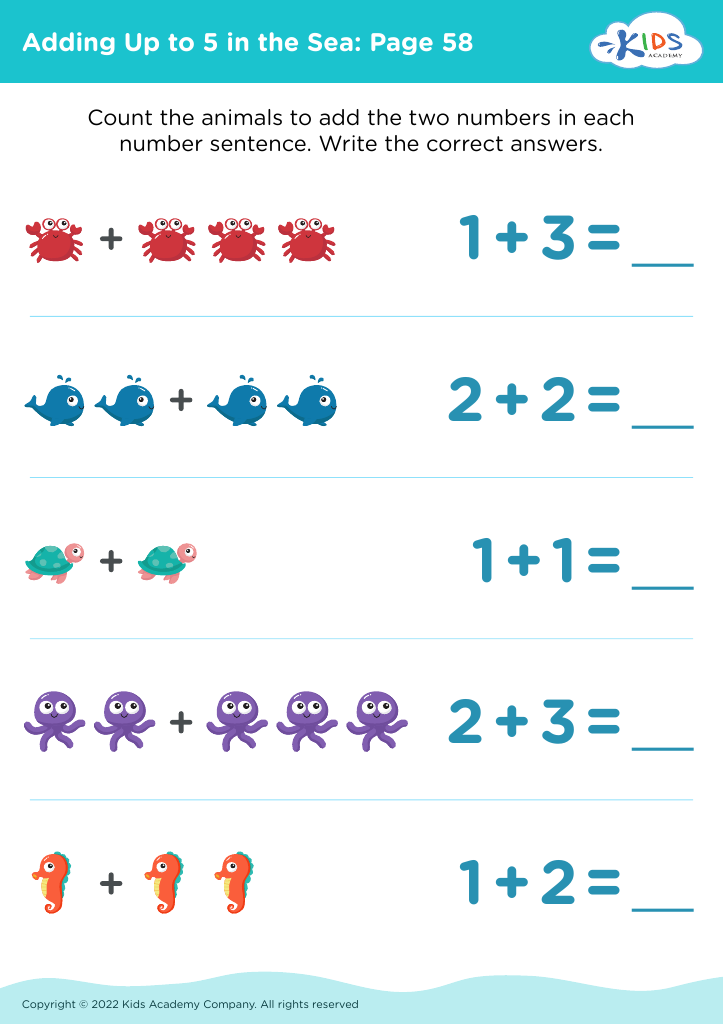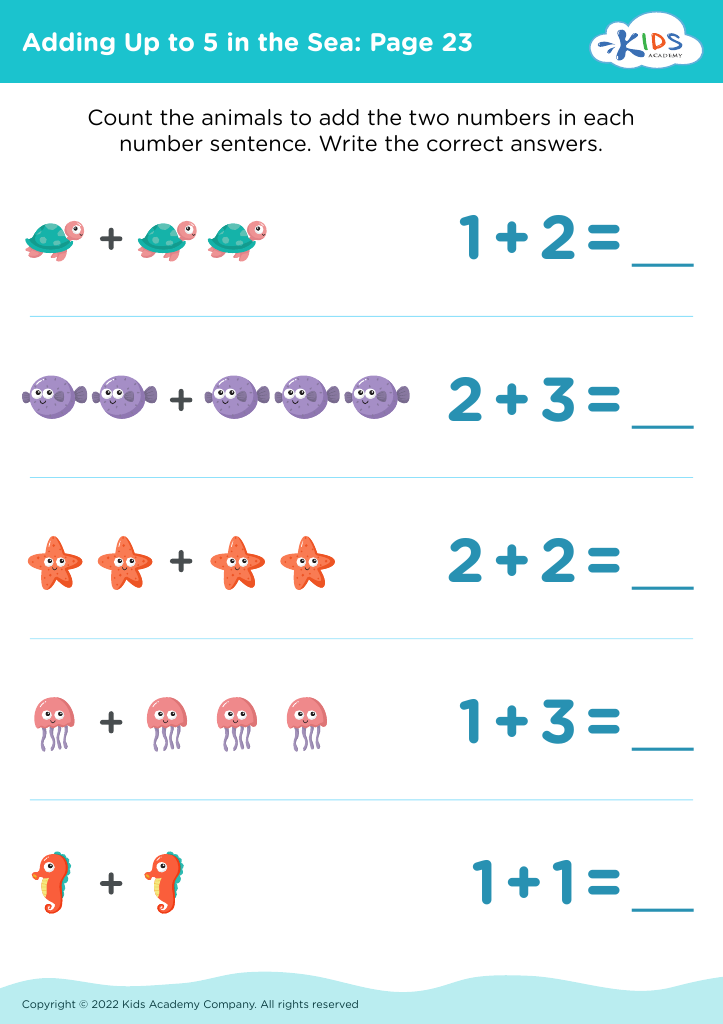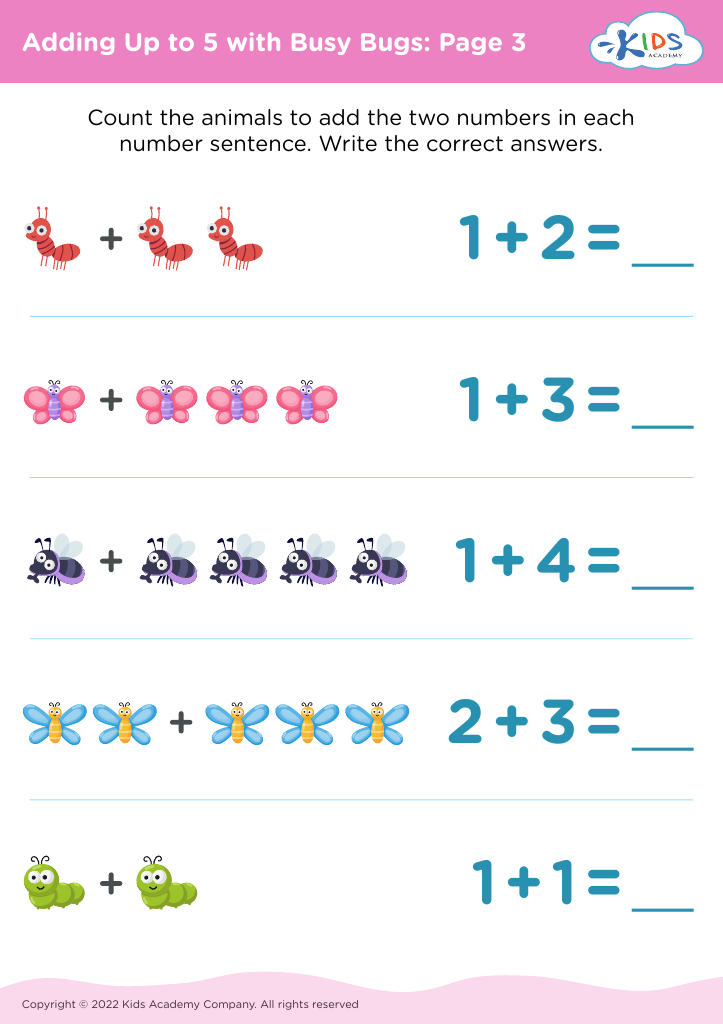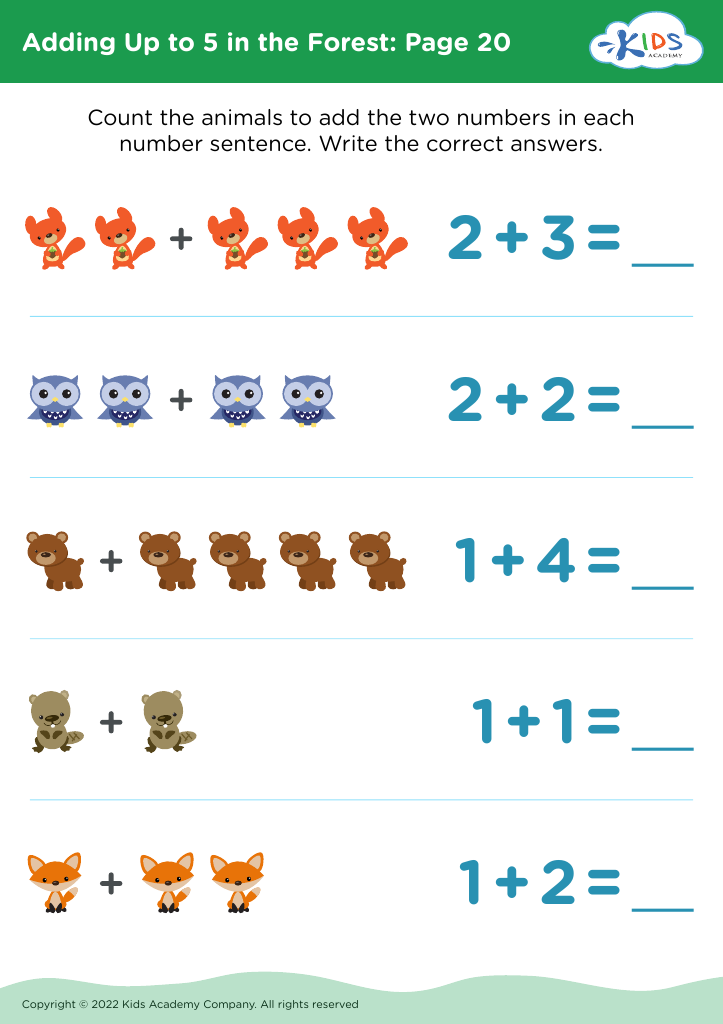Understanding numerical values Addition Worksheets for Ages 3-9
4 filtered results
-
From - To
Discover our "Understanding Numerical Values Addition Worksheets for Ages 3-9" to make math learning fun and effective! These expertly-designed worksheets help young learners grasp foundational addition concepts through engaging visuals and step-by-step exercises. Targeting children ages 3-9, the activities focus on understanding numerical values, enhancing problem-solving skills, and building confidence. Our colorful, interactive sheets adapt to each child’s learning pace, ensuring a solid foundation in mathematics. Ideal for parents and teachers, these worksheets are the perfect resource to support early math education and foster a love for numbers. Start your child’s math journey with Kids Academy today!
Understanding numerical values and basic addition for children ages 3-9 is foundational for multiple reasons. First and foremost, early proficiency in math builds critical thinking skills and sets the stage for academic success in higher grades. When children grasp numerical values and rudimentary addition, they form a basis for tackling more complex mathematical concepts like multiplication, division, and fractions in later years.
Early arithmetic skills are also intrinsically tied to everyday life. Understanding numbers helps children tell time, measure ingredients in cooking, and recognize patterns. These practical applications foster independence and confidence. For instance, knowing how to count change while shopping helps build financial literacy from a young age.
Moreover, engaging with numbers and addition promotes cognitive development, aiding in logical reasoning, problem-solving, and memory enhancement. The process of learning to add numbers also encourages attention to detail and hones fine motor skills as children write numbers and manipulate objects to count and add.
Parents and teachers should care deeply about nurturing these skills early on because they lay a critical educational foundation. By fostering a positive, enriching, and engaging numerical learning environment, adults can help children develop a lifelong appreciation for math, setting them up for success in school and beyond.




















